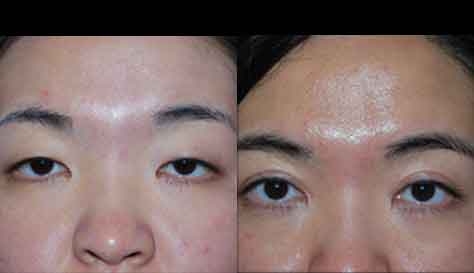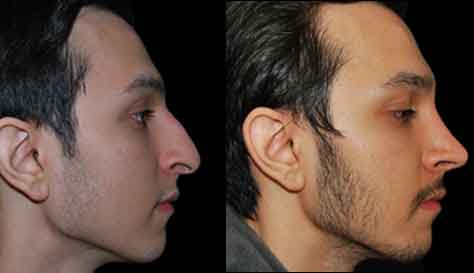Finding The Right Surgeon
Conveniently located to serve the areas of New Jersey and New York
Dr. Ovchinsky is a nationally recognized expert in Rhinoplasty. For more information about this procedure please view our Rhinoplasty page.

If you are planning to have rhinoplasty, commonly known as a “nose job,” you’ll want a highly qualified surgeon to perform the procedure.
The process of selecting the “right” doctor may be very confusing at times, therefore I decided to come up with a short guide to streamline the process.
- Ask around for recommendations and do your online search for a rhinoplasty surgeon in your area. It’s a good idea to look for a surgeon whose practice is mostly or exclusively involves rhinoplasty.
- This will undoubtedly give you quite a few options that you will need to narrow down.
- Go on individual surgeon’s website and check the photo gallery to make sure you like the results. Of course, the results may vary case by case, however each surgeon has his/her own individual “style” which may or may not appeal to you.
- Check surgeons’ credentials, board certifications and online reviews. Customarily, rhinoplasty surgery is performed by Facial Plastic Surgeons and General Plastic Surgeons. Facial Plastic Surgeons are also trained in Otolaryngology-Head and Neck Surgery and this training comes very useful when dealing not only with cosmetic improvement, but also with the correction of functional (breathing) problems.
- Hopefully, by this point you narrowed your options to 3-5 surgeons. This is the time to start scheduling in-person consultations. A consultation is your chance to meet the doctor and his office staff, get a comprehensive nasal examination and discuss a specific plan for your surgery. Many surgeons also perform simulation photos of your proposed surgical result which, albeit never a full guarantee, can give you an idea of what to expect and may help you with your decision making. Remember – a surgeon may look great online, but if you don’t have any personal connection and trust to him/her as an individual, then maybe it’s worth to continue looking…
- Hope this helps. Wishing you all the best in your rhinoplasty research! Rhinoplasty is generally a very rewarding surgery, and while any surgical process is a stressful one, please try not to loose the optimism and positive outlook along the way!
Sincerely,
Alexander Ovchinsky, MD
FAQ
What do I need to avoid before surgery?
If you are on “blood thinners,” you will be asked to stop them approximately one week prior to surgery. We also ask that you avoid certain over-the-counter medications. If you are taking some herbal supplements, you should stop those as well as they may contain blood thinning substances. Also, you have to completely quit smoking at least two weeks before surgery.
What about my daily medications before surgery?
You will have a preoperative appointment well in advance of your surgery when we will review all mediations with you. If you are on “blood thinners,” you will be asked to stop them approximately one week prior to surgery. We also ask that you avoid certain over-the-counter medications. You may continue taking most routine medications up until the morning of surgery with a small sip of water.
What happens after surgery?
You will go to the recovery room for a few hours until you are fully recovered from anesthesia. Once you are stable you will be taken home (or to a hotel) by your family member or a friend. You will want to stay relaxed for the first few days. You will need to keep your head elevated when in bed to help with faster resolution of swelling. You should begin to start walking, eating, and using the restroom the day after surgery. Your activity can slowly increase each day but it will take up to 2 weeks before you start to feel like your old self again. You should avoid any strenuous activity for 4 weeks. You will need to take medication prescribed to you by Dr. Ovchinsky, which usually include antibiotics, pain medicine, antibiotic ointment for the incisions, and occasionally anti-nausea medications.
Are there any dietary restrictions following surgery?
No. Patients can eat whatever they want. Advance your diet from liquids (fruit juice, milk shake, etc.) to soft food (pudding, macaroni and cheese, mashed potatoes and gravy, oatmeal, pasta) to solids as tolerated. To prevent dehydration, please drink as much juices and nutritional fluid as possible.
When will my stitches be taken out?
Stitches are normally removed five to six days after your surgery.
How soon will I be able to exercise?
Dr. Ovchinsky recommends that patients do not return to exercise for three weeks after their procedure.
When will I be able to see the results?
You may see the difference right away, and more so once the swelling goes down within the first one to two weeks. As with any surgical procedure, it takes anywhere from 6 to 12 months for the results to become final.
What is special about the way Dr. Ovchinsky does the surgery?
Dr. Ovchinsky tailors his surgical technique to an individual patient rather than using the same “run of the mill” surgery on everybody. The technique he uses causes minimal pain, has natural results, and is long-lasting. The vast majority of patients are quite surprised afterward at how little discomfort they have and how quickly they return to normal activity. Most patients have minimal bruising. Finally, with Dr. Ovchinsky technique and attention to details during skin closure, scars are typically minimal and are often difficult to see once they have fully matured.





